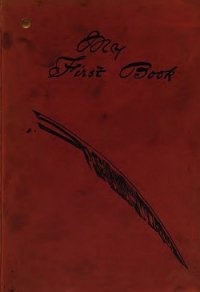Operation Nemesis: The Assassination Plot that Avenged the Armenian Genocide - Bogosian Eric (читать книги полностью без сокращений txt) 📗
Ravished Armenia was released before Turkish denialists were conscious of the value of film as propaganda, but as Hollywood grew in its power to inform, and as the Turkish government began to focus on its Armenian public relations problem, the next major film slated for production would be stopped altogether. One of the most popular best-sellers of the early twentieth century was Franz Werfel’s novel The Forty Days of Musa Dagh, a fictional retelling of the story of an embattled Armenian village that fought off the Turkish military. It is based on the true story of a village near the Mediterranean coast whose residents resisted deportation and were eventually rescued by the French navy.
In 1933 The Forty Days of Musa Dagh was a huge critical and commercial success worldwide. In 1934, as the American edition was about to reach the bookstores, Louis B. Mayer snapped up the rights for a film adaptation by Metro-Goldwyn-Mayer. David O. Selznick, sensing that the material might be of concern to the Turks, came up with the idea that the film could avoid tarring all Turks with the same brush by featuring one particularly evil antagonist. (This was a departure from the tone of the book.) As a courtesy, through an intermediary, Selznick contacted the Turkish ambassador and informed him that a production of the adaptation was imminent.
The wheels of production began to turn, and Irving Thalberg assigned Carey Wilson to write the Musa Dagh screenplay, with William Wellman as director (later Rouben Mamoulian would be enlisted to direct) and William Powell in the lead. Before the first book was sold in the United States, the Turkish ambassador, Mehmet Munir Ertegun Bey, was in contact with Wallace Murphy, chief of Near Eastern affairs at the State Department, expressing his concern. Murphy in turn got in touch with Will Hays, head of the powerful Motion Picture Producers and Distributors of America (MPPDA) in Washington, also known as the “Hays Office,” which acted as the official censor for the industry. Hays didn’t see why Turkey would have a problem with the script and gave it his OK.
Turkish government officials let it be known, however, that they wished production to cease. When this did not happen, objections became threats. Through intermediaries, the Turkish government made it clear that the film would be banned in Turkey and that “the Turkish authorities were prepared to expend every effort all over the world to prohibit the picture.”7 Turkish professionals and businessmen weighed in and warned the studio that in their opinion, release of this film would only exacerbate tensions in Turkey. At one point an MGM executive actually met with the Turkish ambassador. In addition, MGM’s man in Turkey advised his bosses that the studio’s business interests in Turkey would suffer. Even the tiny Armenian community in Istanbul was pressured. Turkish Armenians contacted MGM to ask that the film be shelved.
MGM would not relent. The story became front-page news in Turkey and even “threatened Franco-Turkish relations via Muslims in North Africa.” Eventually, Secretary of State Cordell Hull was drawn into the fray. He contacted Will Hays and asked him to “dispose of the issue.” Though MGM had a lot of money invested in the picture, in the end the Hays Office (utilizing its power via the Production Code of 1930) supported the Turkish government and refused to give approval for production to commence. MGM-Loew’s executive William A. Orr “personally informed the Turkish embassy of his complete support for the Turkish position. He agreed that filming the novel would be harmful whatever the modifications. Preferably, it would be better for all parties to drop the scheme altogether.” The Forty Days of Musa Dagh would not be produced by a major Hollywood studio. Ambassador Munir Bey saw the victory as confirmation that the story told in the novel was fiction and he said as much. A version of the novel was finally produced in 1982, though it fell short of the major studio production that had been envisioned. The precedent had been set: with enough pressure, Turkish authorities could affect how their nation was represented in other countries, including the United States.8
Behind each decision made in and around the region, the United States and its allies had always had oil in mind. Long before the onset of World War I, Winston Churchill, then serving as First Lord of the Admiralty, knew that for his navy to remain powerful, it must have a plentiful supply of oil. Millions of barrels of petroleum were needed to float a navy that had as its centerpiece the “super-dreadnought” battleship, the cutting-edge naval weapon of its time. These massive ships could not run on coal.9 Churchill’s observation still stands: “Mastery itself was the prize of the venture.”10 International oil cartels had been formed to distribute the oil and share the wealth. The Americans and the French, who were the only other loud voices here, were party to these cartels, so they did not interfere with British acquisition of the Arab lands.
Great Britain relied on its vast navy to control the ports of its empire and to make war on its enemies.By October 1911, Great Britain had 189 seagoing vessels requiring fuel oil. Britain needed 200,000 tons of petroleum per annum, but had no fully secure source for this natural mineral resource. Neither did Germany. Baku in Azerbaijan had very large proven reserves, but it lay within the Russian sphere of influence. As the years ticked by and oil exploration became more sophisticated, the need to exploit the massive petroleum reserves lying under Turkish, Arab, and Persian deserts became irresistible.
This thirst for oil compelled a deeper involvement in the Ottoman Empire. Complex negotiations over oil rights took place almost nonstop in the decade preceding World War I. “The advantages conferred by liquid fuel were inestimable,” said Churchill. “Fortune brought us a prize from fairyland beyond our wildest dreams.”11 British, American, French, and German leaders and businessmen felt that they had the rights to the mineral resources in the former Ottoman Empire because they had “discovered” the oil in the first place. It seemed obvious to the Europeans that the people who had settled amidst the sand and rocks lying on top of these vast reserves were irresponsible and backward and had no idea how to exploit what they had. England, France, and Germany had the muscle to take what they needed. But then there was the matter of legality. If oil was going to be extracted from foreign territories, it was essential that this be done in a way that would be legally binding. Forever.
Turkey’s leaders were aware of the value of this underground treasure, but they did not have the technology or the engineers to exploit it. It made better sense to license the lands to the highest bidder. But holding a straightforward auction was no simple matter. First of all, in the years leading up to World War I, the Ottoman government was in flux. The sultan, still wielding power until 1909, had a personal fortune, the Liste Civile, which included all the oil rights of Arabia. (The Liste Civile or Privy Treasury was traditionally administered by an Armenian. Under Abdul Hamid II, the minister of the Liste Civile was Hagop Kazazian Pasha.) Second, negotiations in the Middle East were always complicated and multilayered, especially when one was dealing with a bureaucracy as labyrinthine as that of the Ottoman Empire. Bribes and backroom negotiations were de rigueur. A middleman was needed.
Enter Calouste Sarkis Gulbenkian, a Turkish-born Armenian engineer educated in London, who was a seasoned trader in kerosene and machine lubricant. The sultan had consulted with Gulbenkian regarding the untold wealth lying under his empire’s deserts and chose him as the man who would act as the go-between for financial interests in London and Constantinople. All Gulbenkian asked in return for his agency was five percent of the proceeds. At the time, this didn’t seem like an outlandish request. The respective boards of directors of corporations representing English, French, and American interests agreed to this arrangement.12




